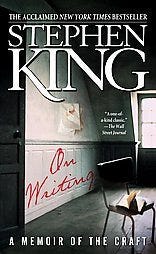Every Book is Different
I love reading about authors’ writing processes. Even though I’ve been writing for a long time and publishing for a little while, I still read blog posts and books on writing all the time. I look forward to interviews that ask authors about how they wrote and revised their books. And occasionally I’m asked, “What’s your writing process?” As it turns out, there’s no simple answer to that question. The first thing you realize when you’ve read a lot about how other authors write is that every author has a different process. That means there’s no “right way” to write—whatever works for you is great if you’re actually finishing manuscripts, but your methods may not work for someone else. For example, Ernest Hemingway wrote every morning at dawn, while standing, but Ray Bradbury didn’t bother with a set schedule at all and worked anywhere and everywhere, presumably in a chair. Some authors like to outline, some people are “pantsers” and make it up as they go along. Some revise as they write and end up with fairly polished first drafts, but I like to dash for the finish line without looking back then tidy up the mess I’ve made.

So if there’s no right way to write, why bother studying how others do it? Partially, it’s cool when I find out that a famous author or someone whose work I admire does the same things I do — it’s like some sort of validation that I’m not doing it wrong. When you’re first starting out, you have no idea how to write a novel even though you’ve read a ton of them, so you’re desperate for any guidance you can get. And even if you’ve finished a book, you’ll probably discover soon enough that you haven’t figured it out at all, because just as every writer has a different process, each project may require a different process too. That means writing never gets any easier either, but at least that keeps things fresh and exciting. I wrote my first two novels without an outline, and that turned out all right, but I got stuck on the third one (which I’m actually still revising) so I wrote a loose outline; in that case, it was useful because working the plot out in advance made me spend my writing time more efficiently. Learning about other approaches to writing can expand your toolbox, so if your old process doesn’t seem to be working anymore, you can try something new. I’m writing a book now about teenage hacktivists, with a fairly complete outline, and I’ve tried a few new things with this project:
This is the first book I’ve written from scratch in Scrivener. (I’ve used it before to revise some older manuscripts.) I like the way the program keeps me organized and it makes it easier to follow my outline and track my work.
For the first time, I’ve created a Google Map for my story with all the key locations pinned on it. The characters are moving around all over the place, so the map helps me get the travel time and neighborhoods right, and grounds me more in the setting.
This is also the first time I’ve “cast” the characters in my book. I ended up picking actors who have all been in superhero films or shows, which initially wasn’t intentional but ties into the theme somewhat. The descriptions in my book don’t match the characters exactly, but it helps me to visualize them and it was a fun afternoon of procrastination, which I still consider a healthy part of my process.

So the moral here is that we’re always growing and changing as writers, and we should constantly be challenged by the books we want to write and open to trying different ways of writing them. So what’s your writing process or routine like? Do you have any particular writing habits?







